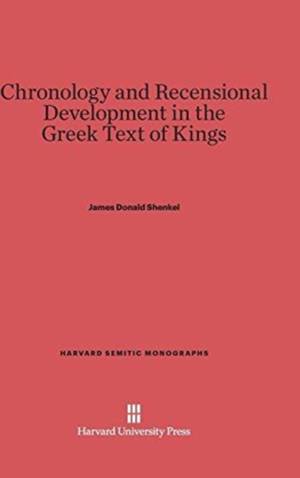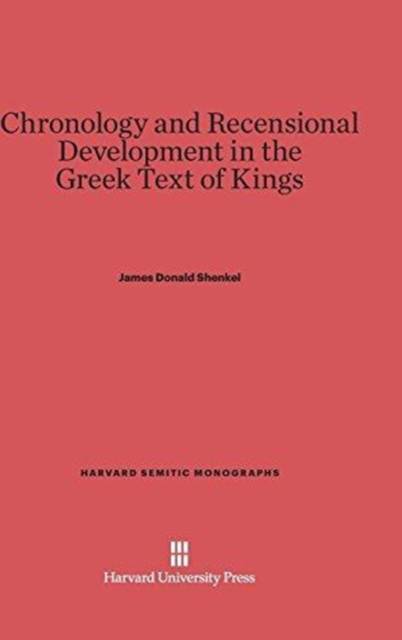
En raison d'une grêve chez bpost, votre commande pourrait être retardée. Vous avez besoin d’un livre rapidement ? Nos magasins vous accueillent à bras ouverts !
- Retrait gratuit dans votre magasin Club
- 7.000.000 titres dans notre catalogue
- Payer en toute sécurité
- Toujours un magasin près de chez vous
En raison de la grêve chez bpost, votre commande pourrait être retardée. Vous avez besoin d’un livre rapidement ? Nos magasins vous accueillent à bras ouverts !
- Retrait gratuit dans votre magasin Club
- 7.000.0000 titres dans notre catalogue
- Payer en toute sécurité
- Toujours un magasin près de chez vous
Chronology and Recensional Development in the Greek Text of Kings
James Donald Shenkel
105,45 €
+ 210 points
Description
This first volume in the Harvard Semitic Monographs series challenges many of the standard positions that have long been held concerning the Greek and Hebrew texts of the Books of Kings. The author's personal examination of the Qumran Hebrew manuscripts, published and unpublished, has led to a new understanding of the recensional development of the Greek text. His study contributes significantly to the methodology of modern textual criticism and the evaluation of historical sources in the Old Testament. Examining the parallel development of the Greek text and the Hebrew, the author attributes the chronological discrepancy between the oldest Greek text forms and the Masoretic text to a change from the chronological system found in the Hebrew Vorlagen of the Old Greek and proto-Lucian texts to the newer system of the Masoretic text. The greatest difference between the two systems is found in the period from Omri to Jehu, where the pattern of regional formulae is worked into the narratives concerning Elijah and Elisha. The author concludes that the reason for the change to the newer Masoretic system was the desire to be able, from a chronological viewpoint, to identify Jehoshaphat as the King of Judah in the narrative of the Moabite campaign, an identification that was not possible in the older Greek chronology.
Spécifications
Parties prenantes
- Auteur(s) :
- Editeur:
Contenu
- Nombre de pages :
- 151
- Langue:
- Anglais
- Collection :
- Tome:
- n° 1
Caractéristiques
- EAN:
- 9780674433311
- Date de parution :
- 05-02-68
- Format:
- Livre relié
- Format numérique:
- Genaaid
- Dimensions :
- 156 mm x 234 mm
- Poids :
- 403 g

Les avis
Nous publions uniquement les avis qui respectent les conditions requises. Consultez nos conditions pour les avis.






